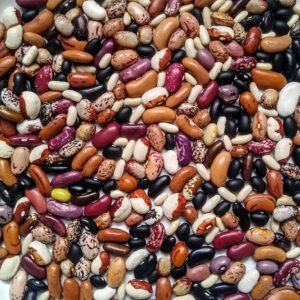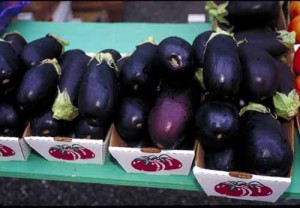
 Tom Willey of T&D Willey Farms reflects on his trip to Organicology earlier this month and lessons learned in the important role he and other farmers play in “recapturing immensely valuable” varieties. This blog post is cross-posted from EcoFarm.
Tom Willey of T&D Willey Farms reflects on his trip to Organicology earlier this month and lessons learned in the important role he and other farmers play in “recapturing immensely valuable” varieties. This blog post is cross-posted from EcoFarm.
I spent serious time and money two week’s back to learn I don’t know much of anything about plant breeding, or even seed saving.
I flew to Portland, a destination high on my interest list, as a participant in that city’s three day Organicology event, hosted biannually by Oregon and Washington’s organic farming communities.
The main attraction that lured this California farmer north was my more radical farming brethren’s increasing devotion to seed production on their own farms as well as breeding new vegetable cultivars and small grains for local adaptation.
Today’s globalized seed industry seems hell-bent on covering the earth with fewer crop varieties of vastly diminished genetic diversity. Now, even “workhorse” hybrids like Black Bell eggplant, adopted more than three decades ago by Fresno’s regional vegetable growing community, are in the hands of Monsanto and threatened with abandonment… something must be done. “Mad as hell – aren’t taking it anymore.”
Pacific Northwest agrarians lead that charge; in collaboration with equally frustrated, public-minded plant breeders they formed the Organic Seed Alliance early last decade. The Alliance facilitates cooperative projects linking groups of farmers with professional breeders to develop new varieties employing Evolutionary Participatory Breeding (EPB), adopted from a model created about 20 years ago to meet unaddressed needs of the developing world’s small-scale growers. EPB’s approach relies on evolutionary forces and natural selection, acting upon genetically diverse plant populations, to guide a farmer’s choice of site-specific varieties, informed by a geneticist’s guidance.
The schooled breeder may gather as few as two, or as many as two-dozen, existing cultivars that exhibit useful traits in the desired end product. These, he purposely cross breeds in random fashion to achieve the most diverse germplasm pool possible from which cooperating farmers will continuously reselect over succeeding generations. Darwinian evolutionary pressure naturally selects for higher yield and increased tolerance/resistance to disease in this scheme but not for market dictated qualitative values that must be prominent in the original chosen parent lines.
Finding a nearby breeder-partner could sorely tempt me to embark on a venture aimed at recapturing immensely valuable eggplant and yellow crookneck summer squash varieties we are in danger of losing to oblivion.
–Tom Willey
